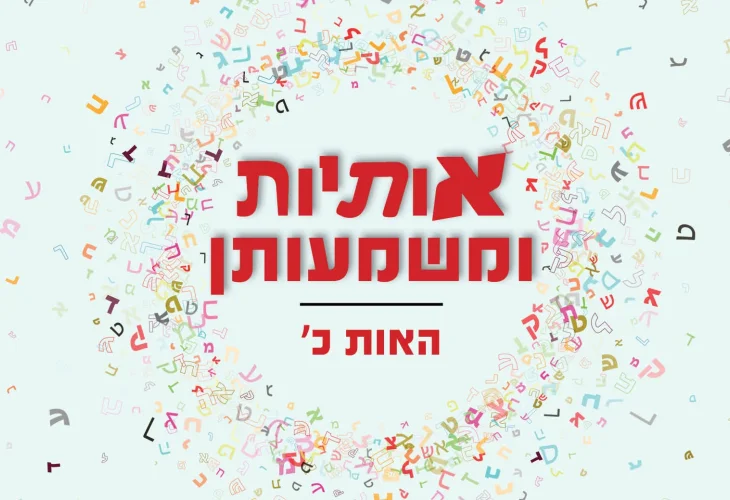Exploring the Power of the Letter 'Kaf' in Jewish Mysticism
While Aleph symbolizes the creative energy of the universe, Kaf represents the force shaping matter according to divine needs. The Hebrew word 'koach' (strength) illustrates this: Kaf exerts power on matter, while Chet represents the matter itself.

The name of the letter 'Kaf' originates from 'keefuf', meaning bending, and is even used to describe items with a bent shape - a 'kaf'. The letter itself is structured like a bend. To bend is to subdue. When an individual or group is compelled to act, it is considered coercion, or 'koafim'. Physical material is bent, while humans are coerced through threats and force.
In the Talmud on Shabbat, Kaf is described with the phrase "a crown for you," symbolizing its royal power and the ability to impose upon others. The word 'melech' (king) also ends with Kaf.
Bending material is unique because it neither destroys nor cuts it, but rather subdues it. This bending gives shape and purpose, akin to a spoon's utility. Although it requires force, the bending isn't destructive; it transforms for proper use.
Aleph symbolizes the creation energy, the force that manifests matter. Kaf represents the force acting upon matter, adapting it to the Creator's diverse needs. Even the word 'koach' comprises Kaf and Chet: Kaf is the force on matter, Chet is the material.
Beyond the Creator's power, humans wield influence as well. By choice, they shape materials from simple tools to complex creations. This stems from humanity's divine wisdom granted by Hashem. Significantly, the Torah's first word with Kaf is 'ki', explaining human choice. Earthly happenings don't have causal explanations; stones don't fall "because", nor do animals act "because". Humans choose, and justify with "because..."
The Creator's force initiates creation, symbolized by Aleph. Creative power is also bestowed upon humans, hence it's marked by Kaf, the twentieth letter. It starts the second set of ten letters, where 'twenty' suggests duality; every choice has two sides. Curiously, arbitrary choice shines in duplicating Kaf: "kakha", highlighting decision strength – "that's how I decided. Do this."
'Keriya' is the bending of the body, a submissive bow, akin to the 'berekh' (knee). 'Kefel' means duplicating by bending, similar to folding, and metaphorically doubling numbers. To conquer, ride, bind, incarcerate, surrender, or bend utilize Kaf (even laundering means subduing clothes in water, bending to clean them). 'Ken' symbolizes submission, with the nod of 'yes' being the head's bend. Embarrassment bends human will, as does the 'bKa Valley', an abode of downtrodden souls. A 'sivcha' is tangled, bent shrubs intertwined.
Blessing lies in harmony between Bet and Kaf: the Creator's creative force and mankind's material subduing choices. When humans submit to Hashem, declaring His reign, and their choices aim to subdue desires, conquer matter, crafting positive creations—this is blessing. Abundance flows from Hashem to human endeavors. Likewise, a water pool blends source and human engineering, bending the earth for peaceful water retention.

